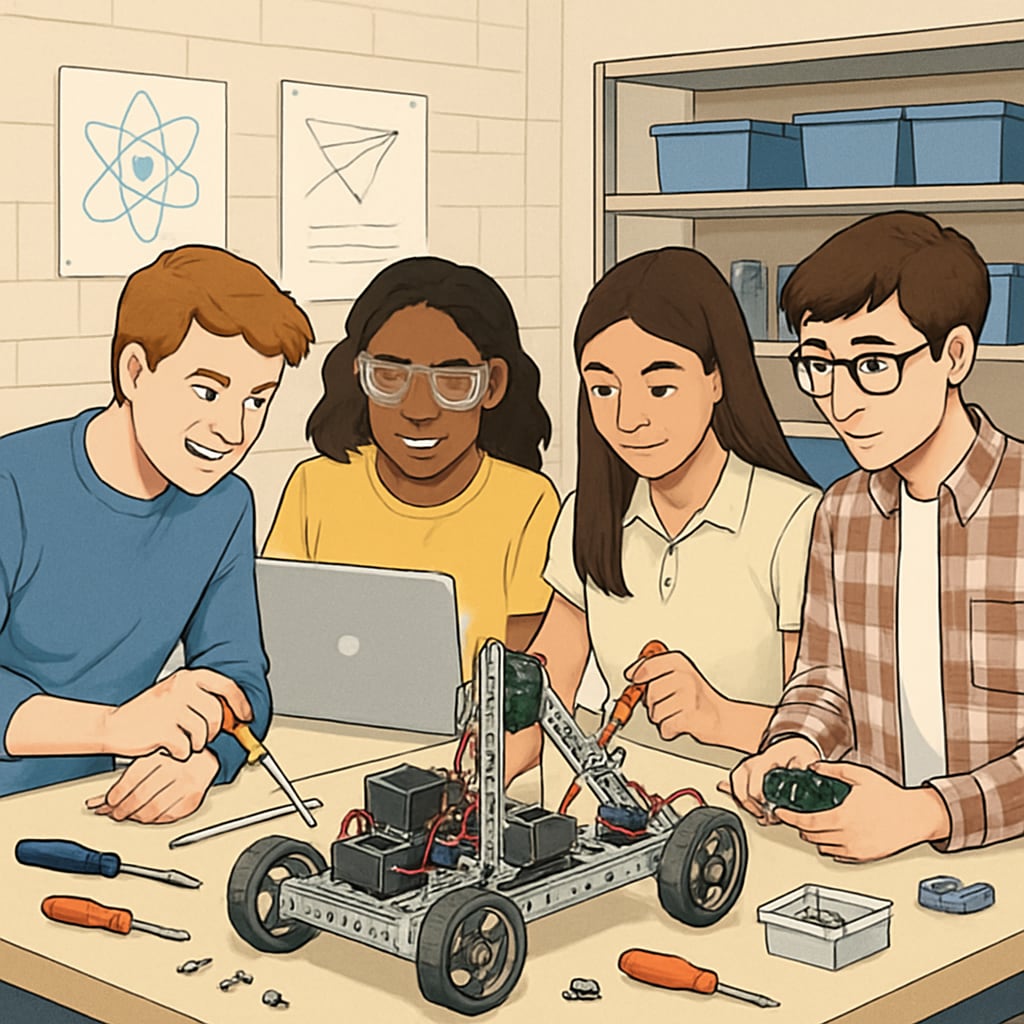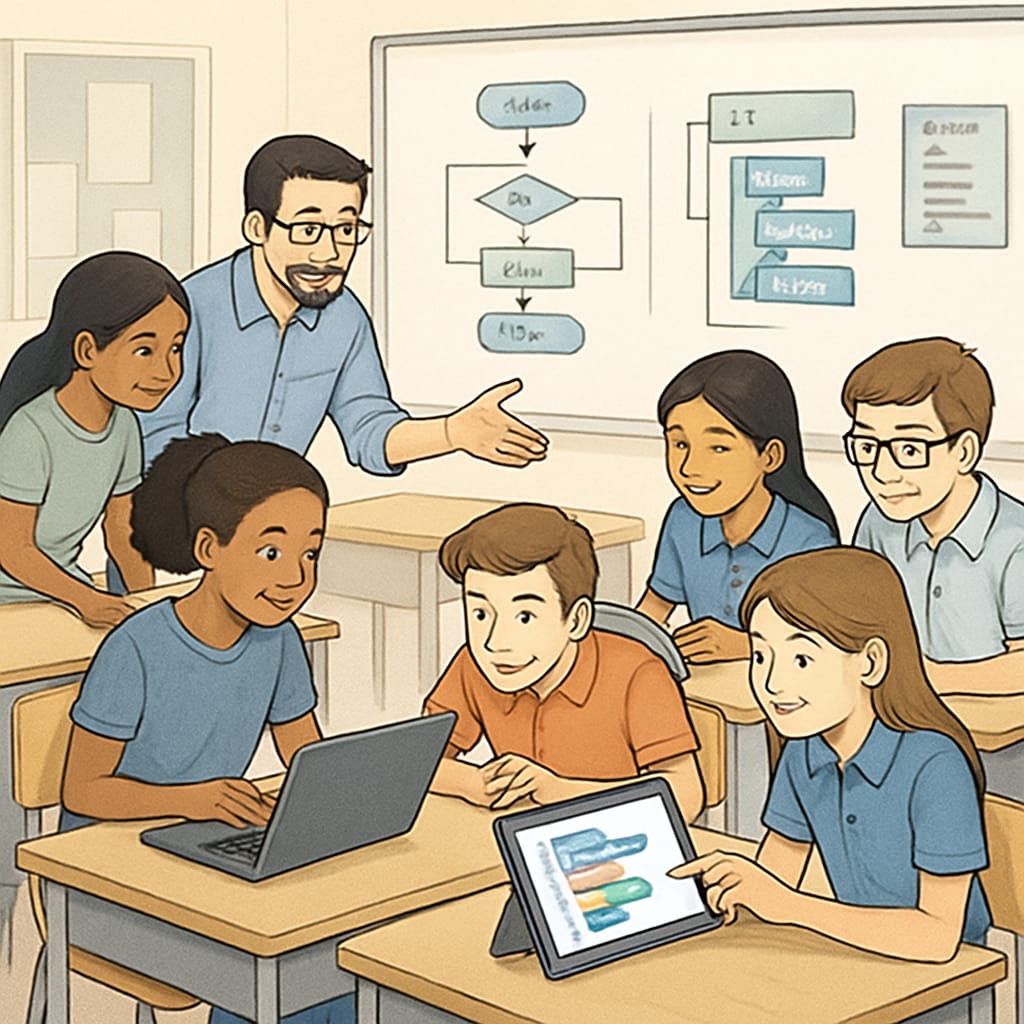The need for curriculum reform in American high schools has become evident, as the emphasis on humanities has overshadowed the space needed for STEM education and future skills development. A more balanced approach that includes reducing the load of humanities courses can enable students to acquire scientific, technological, and emotional intelligence competencies essential for the modern world.
The Current Imbalance in High School Curriculum
American high schools have traditionally prioritized a broad-based education, with significant weight given to humanities subjects such as history, literature, and arts. While these disciplines are crucial for fostering critical thinking and cultural awareness, the current curriculum often leaves insufficient room for STEM (Science, Technology, Engineering, and Mathematics) education. This imbalance has implications for students’ preparedness for the workforce, where the demand for technical skills is growing rapidly.
For example, a 2021 report by the U.S. Bureau of Labor Statistics highlighted that STEM occupations are projected to grow by 8% between 2020 and 2030, significantly faster than the average for other fields. Yet, many high school students graduate with minimal exposure to STEM subjects, which limits their career options and their ability to innovate in a technology-driven world.

Why Reducing Humanities Load Matters
To rebalance the curriculum, it is not about entirely removing humanities but about reducing redundancy and optimizing content delivery. For instance, instead of requiring multiple years of similar history courses, schools could introduce interdisciplinary courses that integrate history with economics or sociology. This approach could free up time and resources for expanding STEM education and other future-focused programs.
Moreover, the time gained from humanities reduction can be reallocated to skills like computational thinking, data analysis, and coding. These are not only technical skills but also tools for developing problem-solving abilities. Additionally, integrating subjects like philosophy and emotional intelligence (EQ) training can equip students with ethical reasoning and interpersonal skills, further preparing them for diverse challenges.
Integrating Future-Oriented Skills into the Curriculum
A modernized curriculum should focus on blending STEM education with future-oriented skills. Here are three key areas that deserve attention:
- Technical Literacy: Basic proficiency in programming, data science, and engineering concepts should be mandatory, as these skills are fundamental in a technology-driven economy.
- Philosophical and Ethical Thinking: As technology advances, ethical dilemmas become more frequent. Philosophy courses can help students navigate these challenges with critical reasoning.
- Emotional Intelligence (EQ): As automation takes over routine tasks, human-centric skills like empathy, collaboration, and leadership will become increasingly valuable.
For example, schools can introduce project-based learning initiatives where students work on real-world problems that require both technical and soft skills. This approach encourages holistic learning and better engagement with course material.

The Road Ahead: Challenges and Opportunities
Implementing such reforms will not be without challenges. Teachers must be retrained to deliver interdisciplinary and STEM-focused content effectively. Additionally, schools will require investments in technology and updated learning resources. However, the long-term benefits of creating a workforce equipped with both technical acumen and soft skills far outweigh these initial hurdles.
Policymakers and educational leaders must also engage in dialogue with industry experts to align the curriculum with evolving job market demands. Collaboration with organizations like the National Science Foundation and the U.S. Department of Education can provide valuable insights and funding support for schools to transition smoothly.
Conclusion: A Balanced Path Forward
To prepare students for the complexities of the 21st century, the American high school curriculum must prioritize STEM education and future-ready skills. By reducing the overemphasis on humanities, schools can create space for technical literacy, ethical reasoning, and emotional intelligence development. This rebalancing effort will not only enhance students’ career prospects but also ensure they are equipped to contribute meaningfully to society.
As the world continues to evolve, so must our approach to education. By embracing curriculum reform, we can empower the next generation to thrive in an increasingly interconnected and technology-centric world.


